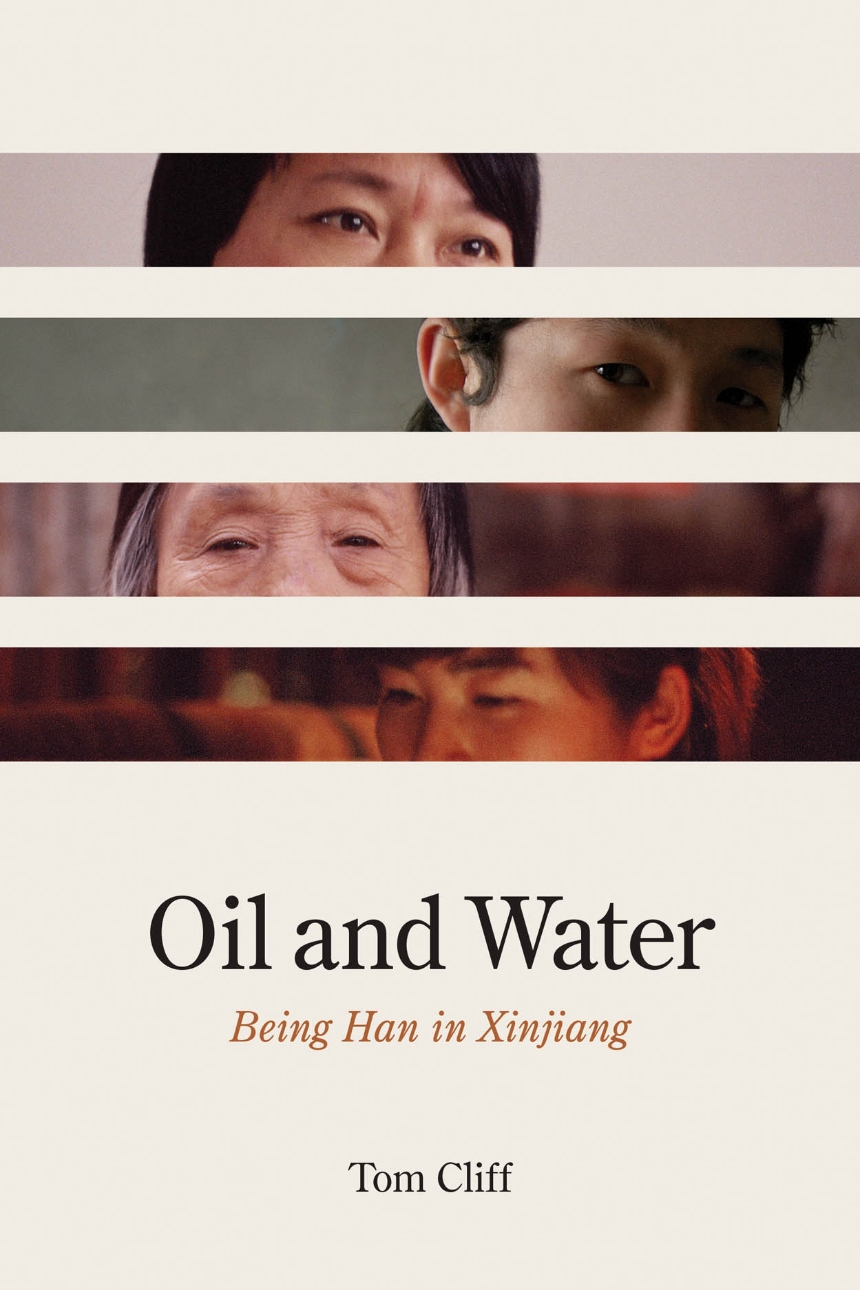Oil and Water
Being Han in Xinjiang
For decades, China’s Xinjiang region has been the site of clashes between long-residing Uyghur and Han settlers. Up until now, much scholarly attention has been paid to state actions and the Uyghur’s efforts to resist cultural and economic repression. This has left the other half of the puzzle—the motivations and ambitions of Han settlers themselves—sorely understudied.
With Oil and Water, anthropologist Tom Cliff offers the first ethnographic study of Han in Xinjiang, using in-depth vignettes, oral histories, and more than fifty original photographs to explore how and why they became the people they are now. By shifting focus to the lived experience of ordinary Han settlers, Oil and Water provides an entirely new perspective on Chinese nation building in the twenty-first century and demonstrates the vital role that Xinjiang Han play in national politics—not simply as Beijing’s pawns, but as individuals pursuing their own survival and dreams on the frontier.
With Oil and Water, anthropologist Tom Cliff offers the first ethnographic study of Han in Xinjiang, using in-depth vignettes, oral histories, and more than fifty original photographs to explore how and why they became the people they are now. By shifting focus to the lived experience of ordinary Han settlers, Oil and Water provides an entirely new perspective on Chinese nation building in the twenty-first century and demonstrates the vital role that Xinjiang Han play in national politics—not simply as Beijing’s pawns, but as individuals pursuing their own survival and dreams on the frontier.
280 pages | 16 color plates, 44 halftones, 1 table | 6 x 9 | © 2016
Anthropology: Cultural and Social Anthropology
Asian Studies: East Asia, General Asian Studies
Reviews
Table of Contents
Acknowledgments
Introduction
1 Constructing the Civilized City
2 The Individual, and the Era-Defining Institutions of State
3 Structured Mobility in a Neo-Danwei
4 Legends and Aspirations of the Oil Elite
5 Lives of Guanxi
6 Married to the Structure
7 The Partnership of Stability in Xinjiang
Conclusion
Bibliography Index
Photo Essay: Urban development in Korla, 2007–10
Photo Essay: Portraits of “Old Xinjiang People”
Introduction
1 Constructing the Civilized City
2 The Individual, and the Era-Defining Institutions of State
3 Structured Mobility in a Neo-Danwei
4 Legends and Aspirations of the Oil Elite
5 Lives of Guanxi
6 Married to the Structure
7 The Partnership of Stability in Xinjiang
Conclusion
Bibliography Index
Photo Essay: Urban development in Korla, 2007–10
Photo Essay: Portraits of “Old Xinjiang People”
